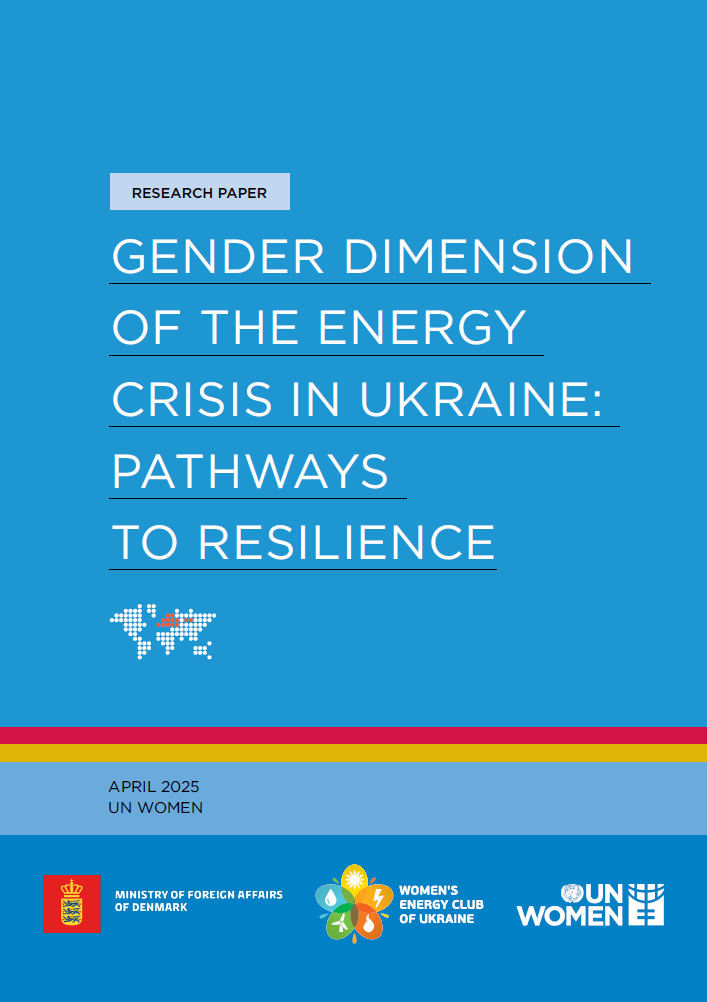
The study “Gender Dimension of the Energy Crisis in Ukraine: Pathways to Resilience”

The energy crisis in Ukraine, sparked by Russian attacks on the energy infrastructure, has become one of the most significant challenges to the socio-economic well-being of the population. While the effects of this crisis are felt across all sectors, women are particularly impacted due to their traditionally high involvement in domestic and care work, as well as their limited access to financial and technical resources. With electricity shortages, rising utility costs, and shifts in the labor market, women are facing a range of specific challenges that could have long-term effects on their social and economic security.
The study titled “Gender Dimension of the Energy Crisis in Ukraine: Pathways to Resilience” is the first comprehensive research in Ukraine examining how the war and energy instability impact women in their daily lives, work, and public engagements. It identifies both socio-economic challenges stemming from rising energy costs and power outages, as well as the gender-specific effects of the crisis.
The results of the study, which included both a representative survey and focus group discussions, highlighted the significant impact of the energy crisis on women’s lives. Women are more likely than men to report increased workloads at home, challenges with caregiving, and financial strain due to rising utility costs and the expenses associated with alternative energy sources.
The study “Gender Dimension of the Energy Crisis in Ukraine: Pathways to Resilience” was implemented by the NGO “Women’s Energy Club of Ukraine” within the UN Women’s project “Strengthening Women’s Leadership for Resilient and Peaceful Societies,” funded by the Government of Denmark.